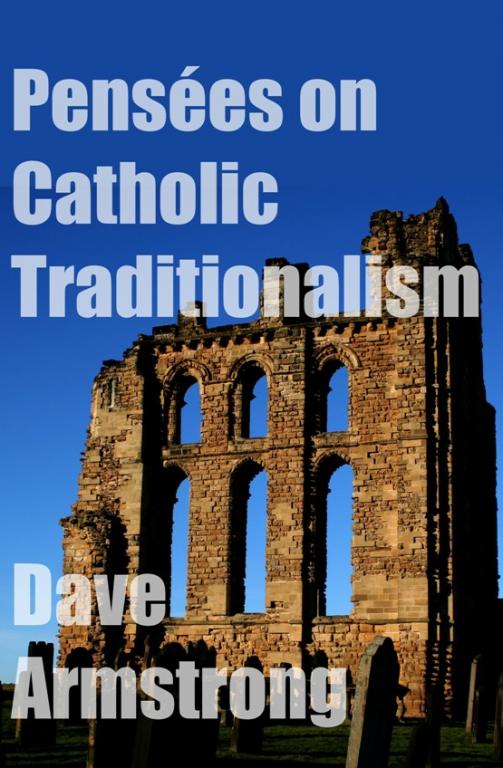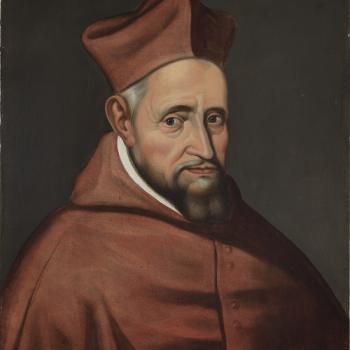
This is a follow-up to my Reply to Timothy Flanders’ Defense of Taylor Marshall. Timothy responded in my blog combox. His words will be in blue.
*****
Dave,
Praise to Jesus Christ!
Thank you for the thoughtful critique of my article here on your website, my brother. I appreciate the words and all of your links since I am not very familiar with your work. I also would prefer to be wrong about the Infiltration and Vatican II, so I have been searching for scholarly critiques of what you call “reactionaryism” so as to provide an objective picture of the evidence which critiques Vatican II (thank you the link to the refutation).
Thank you for stating here in this response that you intended to not interact with the evidence for the infiltration, which explains how your original critique did not discuss more of the primary and secondary sources that Marshall used. It is true, as well, that my article, limited as it was by length did not face more of your points in particular but I needed to make generalizations for the sake of space. I welcome your correction if I have misrepresented you in my own writing.
I would like to ask you first about your comment about Dr. von Hildebrand. He stated in the quotation that I cited in the article that he thought that Freemasons and Communists were orchestrating things back in 1973. It seems you have some respect for Hildebrand, would you consider Hildebrand’s observations to be reactionary or puerile in some way?
Thank you and I look forward to discussing with you brother.
With respect,
Timothy Flanders
Hi Timothy,
Thanks for your reply, and especially the courteous nature of it. All they are doing at One Peter Five is insults up and down (Skojec saying I’m completely “washed up” as an apologist, etc.). Plain silly . . . so it’s nice to have an actual discussion, with the person who wrote the article.
I can understand that you couldn’t deal with all of my article, as it was quite long. I just wanted to explain what its purpose was. I felt that I dealt with your article adequately in my reply, including any “corrections.” I don’t have much to add here except to answer your questions. Thanks again for your humble attitude.
As for Dr. von Hildebrand, I understand that he had a big problem with the New Mass. The way it was implemented in practice, I can understand that. As I noted, I don’t deny that groups have sought to infiltrate the Church. The question is how, to what degree, and with what success. That includes both Freemasons and Communists. So I wouldn’t say that merely noting that is reactionary in and of itself, let alone “puerile.”
It’s the overall thrust of Dr. Marshall’s book that I object to: as if these conspirators were wildly successful. I deny that they have hijacked Vatican II or overthrown any of Catholic tradition. As an apologist I always concentrate on what systems of belief actually teach. There is liberalism and mayhem in any Christian communion: including the Catholic Church. But they haven’t changed Church teaching. To see that, we need only look at Anglicanism, to see the stark contrast.
If you wanna discuss anything else, feel free. That’s all I can think of to say for now.
God bless!
Hey brother thanks for the response.
I understand your feelings toward One Peter Five but I would like to ask you to keep an open mind toward your brethren there (notwithstanding any insults they may have hurled at you). They are a good group of brethren in Christ, though they are coming to different conclusions than you. I think we all need to forgive each other as faithful Catholics in a difficult time. In a counter point to your view of “all they are doing is insults up and down” I can point you to two different articles of mine they have published which make critical statements about “traditionalists.” This alone proves that there is more here than just invective, although I would readily admit (as I do say) a lack of charity from some who call themselves “traditionalists.”
For myself, I do not consider myself a “traditionalist” but I do think many of their points are reasonable and a lot of their evidence needs to be faced. My impression from your first critique of Marshall (and forgive me if I drew an incorrect impression) was that you were simply attempting to quickly label Marshall and dismiss him (your argument seemed to hinge on convicted him of a three point label).
The reason I bring up Hildebrand in particular, is that it would appear he would come under your critique of bashing on points #2 and #3. He wrote privately that Vatican II itself as a “great misfortune” (if I remember his wording correctly), and also devotes a chapter to critiquing the New Mass itself–not its implementation per se–in The Devastated Vineyard. In this work he states “truly if one of the devils from Screwtape Letters was responsible for the liturgy, he would not have done a better job than the New Mass” (again paraphrasing for memory).
Thus when I read Hildebrand, I see a serious intellectual with a deep charity and love for the Church who has serious critiques of the Vatican council as such and the New Mass as such. My point is simply that the “traditionalist” movement is not a bunch of crazy conspiracy theorists but real Christian brothers who are often also serious intellectuals, who deserve the respect of brothers and academics.
For my part, I have been searching for a serious, academic critique of traditionalism but have not been able to find any except Likoudis, whose book, from my view, suffers from an exaggerated ultramontanism and also out of date (published before 2007). I see your critiques were published after Summorum Pontificum so I will be reading those soon. In the mean time, perhaps you would be so kind as to visit my website and provide some of your critiques there, which I would honestly welcome. I would prefer not to agree with traditionalists, but I have not found any way to answer their arguments.
Anyways, I do appreciate the conversation and I hope you have some time to provide some criticism on my website. God bless you and your family. :)
in Christ,
Timothy
Hi Timothy,
Thanks for this response as well, which remains substantive and civil. Good for you. My opinion of One Peter Five remains unchanged, and likely will stay as it is, but I am truly happy to see that they publish a person like you who refuses to get into the petty, personal insults and ad hominem. May your tribe greatly multiply over there!
For myself, I do not consider myself a “traditionalist” but I do think many of their points are reasonable and a lot of their evidence needs to be faced.
I might be closer to traditionalism than you, per my article: Am I a Catholic Traditionalist? (Well, You Decide!).
My impression from your first critique of Marshall (and forgive me if I drew an incorrect impression) was that you were simply attempting to quickly label Marshall and dismiss him (your argument seemed to hinge on convicted him of a three point label).
I explained in some depth at the beginning exactly what my purpose was. It was a sociological examination, showing that Taylor is a member of the category of radical Catholic reactionaries, which, in my usage (I coined the term) is in stark contrast to traditionalists. What people do with that information is up to them. I was simply saying that this is the category of thought we are talking about, which isn’t poisoning the well, but simply being intellectually honest. I’ve done that with regard to several of the formal criticisms of Pope Francis as well. My point was: “be aware of the milieu from which these critiques come (as the dominant influence on them). These are people who also believe things like the dissing of Vatican II and the canonization of John Paul II, etc.”
Of course, I was also arguing that he has gone too far, and that he was dead-wrong on several counts. That’s not poisoning the well, either. It’s simply rational theological / ecclesiological argumentation.
Hildebrand died in 1977, a year before Pope John Paul II became pope, so he saw the worst of the usual conciliar aftermath and little or none of what I would call a “revival.” Sometimes people like that are tempted to throw the baby out with the bathwater. As an analogy, my mentor was the Servant of God Fr. John A. Hardon, S. J. He saw the worst excesses in the beginning of the Catholic charismatic movement, and so became quite critical of it. It’s one of the few things where I disagreed with him. And I did because the Church supports the movement. I had to follow Holy Mother Church, if the choice was between that and even a man who may become a saint one day. Aquinas and Augustine were wrong on a few things, too.
That said, if Hildebrand was against the New Mass and the Council in and of themselves, then he would have possessed two of the four hallmark traits of the reactionary. Otherwise great men can be wrong in some things. This shouldn’t surprise anyone. An ecumenical council cannot be dismissed by any Catholic who believes in indefectibility. I’d have to see his reasoning more closely, but to my mind, there is no argument that can undermine the sublime authority of an ecumenical council.
Right now, I’m writing a series of refutations of Pasqualucci’s 26 supposed “points of rupture” of Vatican II with tradition: an article published at One Peter Five (to their great shame). I’ve completed nine installments (six already posted).
the “traditionalist” movement is not a bunch of crazy conspiracy theorists but real Christian brothers who are often also serious intellectuals, who deserve the respect of brothers and academics.
Again, for me, traditionalists and reactionaries are not the same thing. I coined the latter term precisely because I was trying to find a way to differentiate the extremists from the legitimate traditionalists: with whom I feel a great affinity. It was an effort to retire the term radtrad: which traditionalists (in great numbers) were interpreting to mean “all traditionalists: who are radical”, whereas the intended meaning was “the extreme, radical wing of the traditionalist movement.” I wanted to get “traditionalist” out of my title and “Catholic” in it. Hence, “radical Catholic reactionary.”
As to being serious intellectuals, some are and some aren’t. But there are different levels to that analysis. If I see someone who persists in holding seriously erroneous premises, against all critiques, then I see a person that has a serious credibility problem as an academic (as the case may be). Just being an intellectual or academic is not enough in and of itself. One still has to have true opinions. Chesterton wrote:
[W]hile there are stupid people everywhere, there is a particular minute and microcephalous idiocy which is only found in an intelligentsia. (Illustrated London News, “The Defense of the Unconventional,” 10-17-25)
I call them Catholics, because they are, but I don’t respect at all what they are teaching (when they are in error), because it is serious, dangerous falsehood, and my job as an apologist is to try to protect the flock from such things, and to defend Holy Mother Church. Steve Skojec, on the other hand, has denied that I am a Catholic.
I have written two books critiquing reactionaries (not traditionalists), dated 2002 (rev. 2013) and 2012. I will send you free e-book copies if you like (though they only cost $2.99). They are available in PDF, mobi, or ePub formats.
It may be that further dialogue on your site could be a fruitful endeavor for both of us. I will likely do that, time-permitting. Right now my “project” is the defense of Vatican II contra Pasqualucci. You might want to consider interacting with those as well. I would welcome that.
May God richly bless you,
Dave
***
Photo credit: original, first edition cover of my first book on reactionary Catholicism, later revised in 2013 and retitled Reflections on Radical Catholic Reactionaries, in order to differentiate the extreme reactionaries from legitimate Catholic traditionalists.
***













